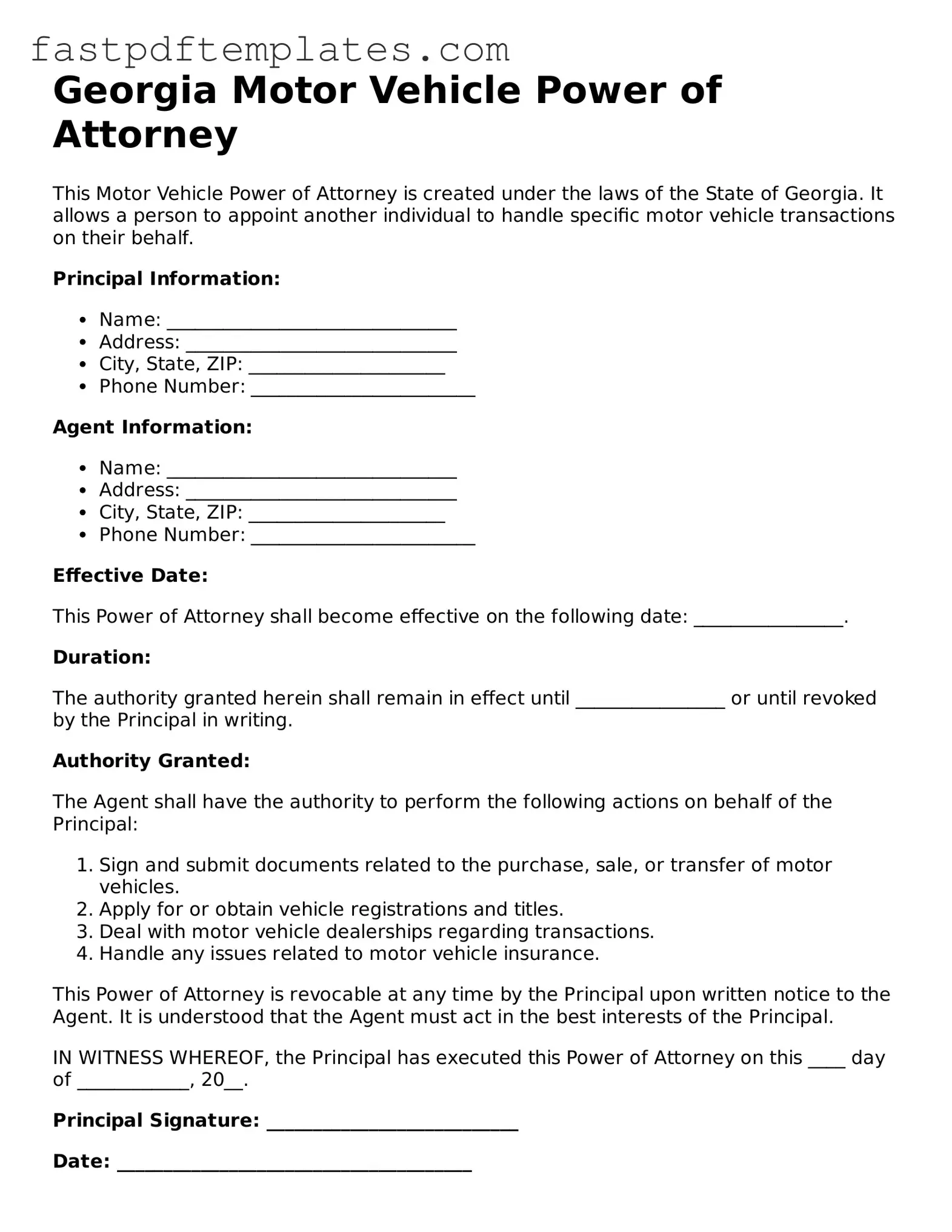Attorney-Approved Georgia Motor Vehicle Power of Attorney Document
The Georgia Motor Vehicle Power of Attorney form allows you to designate someone else to handle specific tasks related to your vehicle, such as registering, selling, or transferring ownership. This legal document ensures that your chosen representative can act on your behalf, making it easier to manage vehicle-related matters without your direct involvement. Understanding this form can save you time and effort when dealing with motor vehicle transactions in Georgia.
Access Document

Attorney-Approved Georgia Motor Vehicle Power of Attorney Document
Access Document
Your form still needs completion
Complete your Motor Vehicle Power of Attorney online and download the final PDF.
Access Document
or
Click for PDF Form
